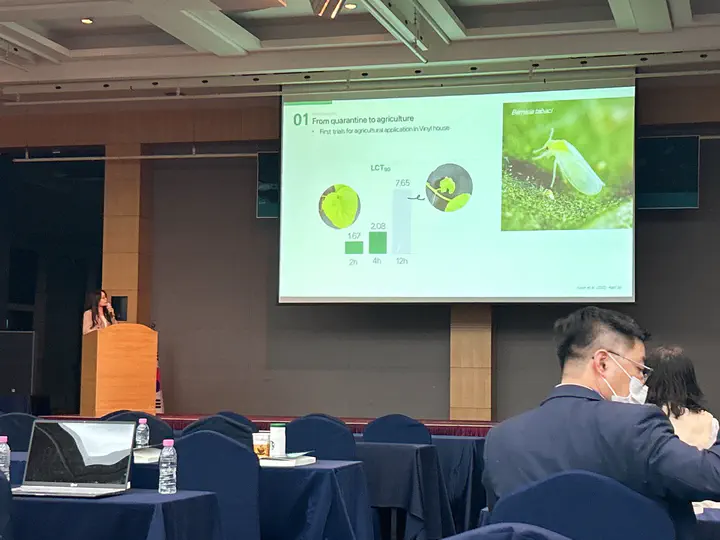Oral presentation in KSAE - Optimizing Ethyl Formate Fumigation for Greenhouse Pest Control

Abstract
This study aims to evaluate the optimized ethyl formate (EF) fumigation method for controlling two major insect pests, Myzus persicae and Trips palmi, in greenhouse-grown cucurbit crops including watermelon, zucchini, and melon. We investigated (1) EF residue levels and their potential environmental impact using headspace-gas chromatography-mass spectrometry (HS-GC-MS), (2) phytotoxicity in three crops at different developmental stages under both laboratory and field conditions, and (3) strategies to mitigate phytotoxicity, thus broadening the range of target pests at more higher concentration. Our findings indicate that optimized EF fumigation can effectively control greenhouse pests while enhancing environmental sustainability and minimizing phytotoxic effects on cucurbit crops. This research provides valuable insights into the development of environmentally responsible pest control strategies for greenhouse cultivation.